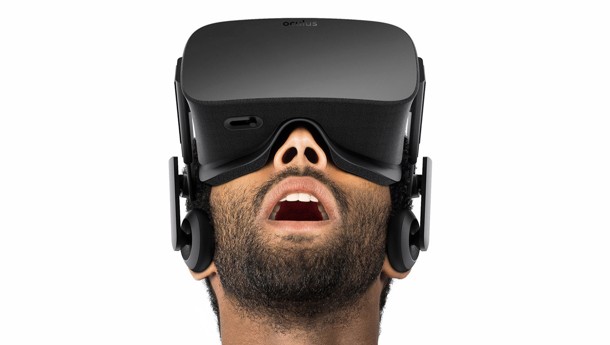Please support Game Informer. Print magazine subscriptions are less than $2 per issue
Zenimax Lawsuit Against Oculus Now Directly Accuses John Carmack Of Theft

Zenimax has filed an amended complaint against VR pioneer Oculus, which marks the latest update in a suit that has been raging since May 2014. The complaint, which alleges a variety of transgressions, now includes Oculus CEO Brendan Iribe and id Software co-founder John Carmack by name.
The suit also directly names Oculus parent company Facebook, with amended charges against the VR company that further detail a key source of conflict: misappropriated Zenimax property. Specifically, the filing now spells out theft allegations against the id Software co-founder and Oculus’ current chief technology officer John Carmack.
“Instead of complying with his contract, during his last days at ZeniMax, he copied thousands of documents from a computer at ZeniMax to a USB storage device,” the amended filing (below) alleges. “He never returned those files or all copies of them after his employment with ZeniMax was terminated. In addition, after Carmack's employment with ZeniMax was terminated, he returned to ZeniMax's premises to take a customized tool for developing VR Technology belonging to ZeniMax that itself is part of ZeniMax's VR technology.”
Further, the suit increases its allegations that Palmer Luckey is not the inventor of contemporary virtual reality. In the original filing, Zenimax states that "Luckey increasingly held himself out to the media and the public as the visionary developer of the Rift’s VR Technology, which had actually been developed by ZeniMax without Luckey’s involvement."
The similar passage from the amended complaint is far more damning, suggesting that Iribe knowingly spread a tall tale about Luckey creating VR in his parents' garage. "Oculus, at Iribe’s direction, disseminated to the press the false and fanciful story that Luckey was the brilliant inventor of VR technology who had developed that technology in his parents’ garage," the new document reads. "In fact, that story was utterly and completely false: Luckey lacked the training, expertise, resources, or know-how to create commercially viable VR technology, his computer programming skills were rudimentary, and he relied on ZeniMax's computer program code and games to demonstrate the prototype Rift. Nevertheless, this fraudulent tale was frequently reported in the media as fact. Luckey increasingly and falsely held himself out to the media and the public as the visionary developer of the Rift’s VR Technology, which had actually been developed by ZeniMax without any substantial contribution from Luckey."
Zenimax asserts that Facebook had been provided a copy of the non-disclosure agreement made with Oculus. However, the sale was executed despite misrepresentations made by key Oculus officials.
“On May 21, 2014, ZeniMax commenced this action against Oculus and Luckey to obtain full and fair compensation for their unlawful use of its intellectual property,” the filing reads. “ZeniMax’s filing of this action was widely covered in the national media, including in The New York Times, Wall Street Journal, and USA Today, and in the industry press. At or about that time, Facebook was provided by Oculus with a copy of the Non-Disclosure Agreement executed by Luckey. On July 21, 2014, with full awareness of ZeniMax’s claims against Oculus and Luckey in this action, and with full awareness of the Non-Disclosure Agreement executed by Luckey, Facebook closed on its acquisition of Oculus, and became the sole owner of Oculus.”
Facebook is further accused of inducing Oculus to violate its agreement with Zenimax. According to the filing, the non-disclosure agreement states that Oculus founder Palmer Luckey accepted that he would not share Zenimax proprietary information without express permission and that it any disclosure would be limited to “directors, officers, employees, or attorneys” with clear need-to-know.
Zenimax asserts that Luckey signed the NDA not as an Oculus officer, but as an individual. That means that he does not, by extension have directors, officers, or employees personally. However, Zenimax affords that Oculus, by extension was bound by the NDA.
When Facebook acquired Oculus, Zenimax asserts that it too should have been bound by the terms of the agreement. However, the complaint alleges that neither Facebook nor Oculus complied, and therefore the social media company interfered with a direct, executed contract.
Zenimax is demanding a jury trial. We’ve reached out to both companies for comment. We’ll update as more information is available.
Update: Oculus has offered a comment on the latest filing in its defense against Zenimax. The company doesn't have much to say at this point.
"This complaint filed by ZeniMax is one-sided and conveys only ZeniMax's interpretation of the story," an Oculus spokesperson told us. "We continue to believe this case has no merit, and we will address all of ZeniMax's allegations in court."
As a legal filing represents only the perspective of the litigant that filed it, Oculus' statement serves exclusively as a reminder and shouldn't be considered particularly eye-opening.
Our Take
This amended filing is far more pointed in its accusations, directly asserting theft of company goods and tying Facebook more integrally to the complaints. Provided this isn’t settled, expect a long, drawn-out trial that could take years to settle.
Zenimax v Oculus - Amended Complaint by Michael Futter on Scribd










